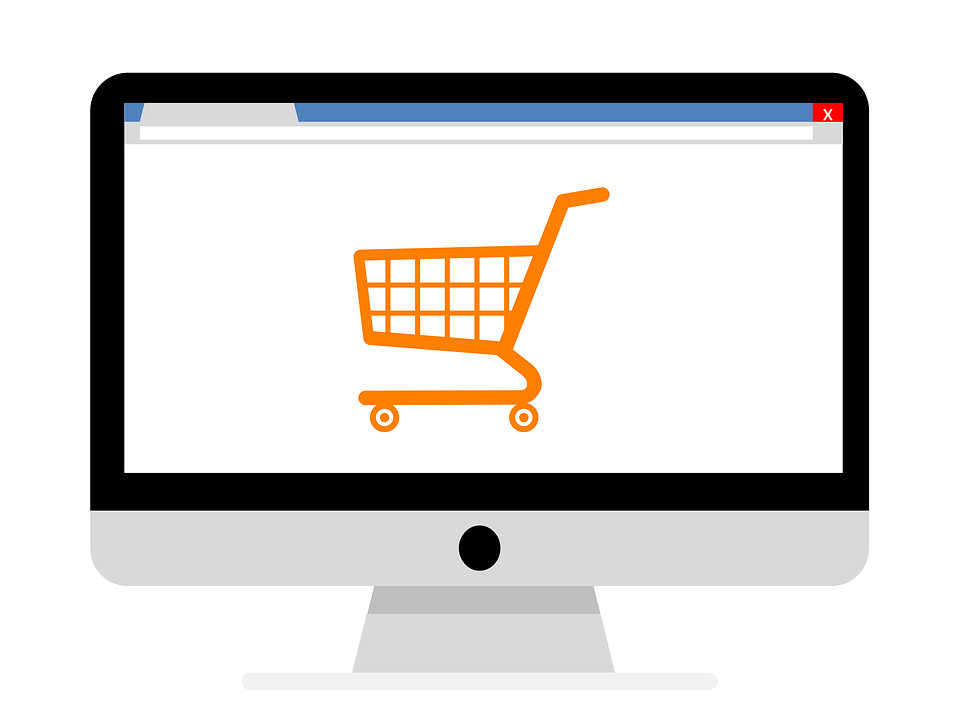Things to Consider When Choosing E-commerce Platform
These tips will help you make an informed decision about key things to consider when choosing e-commerce platform for your business.
E-commerce websites have been evolving for quite some years, at least 10 decades to be precise. Today, people shop from the comfort of their homes or offices and add items to their shopping carts in no time. When it comes to internet sales, E-commerce websites have increased in leaps and bounds in the last couple of years and the market trend will continue.
Although you would hire a web developer to set up your online store, but choosing an already-built e-commerce platform will save your money and time. Now, you will find numerous e-commerce platforms to choose from; thus, picking out the best one becomes a bit overwhelming.
According to an article published on Huffpost.com, you are in the world of selling your products through the digital medium and the next thing to figure out is choosing the best e-commerce platform that will provide a seamless shopping experience to your buyers.
Once you start researching, you will soon realize that there is no one size that fits all. Every e-commerce platform comes with its pros and cons. You need to make your pick depending on your business requirements. But how would you know which platform is the right for you? Well, here are six things to consider before choosing an e-commerce platform to sell your products digitally:
6 Things to Consider When Choosing E-commerce Platform
#1. Platform Integrations
When developing an e-commerce website, focus on platform integrations as well as plugins. There are platforms like Shopify that comes with numerous tools for operating your online store. Your business is a decisive factor when opting for the right plugins that would work best for your website needs.
When scouting for different platforms, choose the tools and plugins you would require for your online shop. The commonly used plugins are email marketing tools to reach out to your audience, accounting tools for sales, revenues, profits and taxes; apps assisting with product shipping, and a platform that rewards your shoppers for choosing your merchandise.
#2. Payment and cost
Pricing is an essential aspect that you must consider when looking for an e-commerce platform to use. Whether you own a small online store or already have a huge shopping portal or physical store operating online in a parallel way, you must know what you are supposed to pay. Yes, we are talking about e-commerce platforms pricing.
Though most of the e-commerce platforms have a monthly fee, the price may differ based on the kind of platform you choose, self-hosted or hosted. The next thing to bear in mind is the order processing fees related to the platform. We recommend that you avoid penny-pinching and not compromise quality for cost.
Take some time out of your busy schedule and study the pros and cons of each platform. And make an informed decision depending on your budget. There are lots of e-commerce platforms like BigCommerce, Shopify, bigcartel, volusion, and 3dcart. So you can compare their individual prices and choose the one that best suits your business needs.
Take into account how your buyers will make the payment for the goods bought online via your e-commerce website. A couple of platforms do not have the option to pay through third-party vendors like PayPal and/or other local online payment platforms. It could lead to much inconvenience for some online shoppers, leading to shopping cart abandonment.
It will translate into lost sales opportunities and no revenues. Therefore, avoid taking any risk and hire best
providers of digital marketing services or agencies with adequate experience in developing e-commerce websites and choosing the right e-commerce platform.
#3. Outstanding customer experience
No business can survive without excellent customer service. The same rule holds when it comes to your e-commerce store. When it comes to a physical shop, their managers and employees have the experience to operate the business flawlessly. On the contrary, your online store is quite different from a brick-and-mortar store.
There are issues like server crashes and software outages that are beyond your control. With these problems lingering, your shoppers will not be able to access your e-commerce website. There are possibilities of all your servers crashing at the same time during peak business hours or the festive season. This may affect your brand image and most importantly revenues.
Hiring a professional web designer or expert to fix your website server issues and making your online store function efficiently is a challenging task. Therefore, before you set up your online shop, inquire about the platform’s customer service or customer support. You must ask and secure answers to these questions before choosing an e-commerce platform.
- Are the customer service reps available round-the-clock?
- Do they have the required knowledge and training to answer customer queries?
- How could people reach them?
- How many support levels exist?
- What is the cost of each support level?
#4. Mobile-friendly e-commerce platform
Studies and stats show that approximately 60 percent of web searches originate from smartphones and other
mobile devices. Most of these searches lead to a purchase from smartphones. It implies that you must choose an e-commerce platform that helps customers to access your online store and add items to their cart from their mobile devices seamlessly.
Mobile friendly e-commerce website matter a lot when choosing your e-commerce platform.
#5. E-Commerce website security
When you shop online, you would never enter your debit or credit card information on a suspicious website right? Else, you could end up losing your money. The same rule applies to online shoppers. That is why e-commerce site security is the primary concern of both business owners and online shoppers alike.
Although most e-commerce applications today have rock-solid internet security standards, you must use an e-commerce platform supporting HTTPS or SSL for a secure transaction for your shoppers, especially when they are making the payment and finally checking out directly from your website.
As the business owner or manager, ensure that your company opt for an e-commerce platform that is Payment Card Industry or PCI compliant. For example, you can opt for BigCommerce for a safe and secure checkout system for your customers.
#6. Platform scalability
All entrepreneurs like to see their business grow and expand as time progress. Why should your e-commerce website be an exception to this rule? Then, that means you may not be aware to what extent your business would grow. Therefore, choose an e-commerce platform that would scale together with your online business.
You need not shell out money for storage and features if you are starting your business. Keep with increasing demand as your online sales shoot up and revenues keep rolling. So pick an e-commerce platform that scales according to the size of your business. And make sure that the platform does not charge an exorbitant fee for scalability. When choosing e-commerce platform for your business, opt for an e-commerce platform depending on your store requirements and future growth.
Author Bio:
 Vergis Eva is an experienced blogger who has written articles for several renowned blogs and websites about various uses of social media to engineer more business traffic on business websites.
Vergis Eva is an experienced blogger who has written articles for several renowned blogs and websites about various uses of social media to engineer more business traffic on business websites.











Comments (2)
Very informative post.
Wow, this blog is awesome, and I enjoy reading your posts. Keep up the good work; I’m sure there are a lot of people looking for this stuff, and you could really help them out.